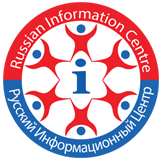Guide
DISCOVER ST. PETERSBURG
St. Petersburg is the cultural capital of Russia, one of the most beautiful cities in the world, which you can not help falling in love with. The Hermitage, the Russian Museum, St. Isaac’s and Kazan Cathedrals, the Church of the Savior on Spilled Blood, the Peter and Paul Fortress, Nevsky Prospekt and the Summer Garden are sights that do not need special presentation. But Petersburg is also the suburbs: Tsarskoye Selo in Pushkin, Pavlovsk and, of course, the brilliant Peterhof. Tourists from all over the world come here to see this extraordinary city of white nights, royal palaces and parks, fabulous fountains and drawbridges.
Very often the city is called “Northern Venice”. By the number of waters flowing here, St. Petersburg is one of the first places in the world. Among hundreds of rivers, canals, streams, channels, the largest river is the Neva. Moika, Fontanka, Nevka and other rivers divide the city into islands and small islands that are connected by bridges.
In total, St. Petersburg has more than three hundred bridges. Thirteen bridges are movable. An unforgettable sight is the sparkling bridges of St. Petersburg. All canals and rivers fit in very well with the city plan, which was developed back in 1712. A boat trip along the rivers and canals of St. Petersburg will leave an unforgettable impression.

Russia more than once leaned toward Europe and again turned away from it, the country’s culture subtly combines European traditions and Asian motives; each annexed territory, each people brought something of their own into it.
Read More
Museums as repositories of artifacts appeared in antiquity, but they were opened to the general public only in the XVIII century.By the way, in 1765 the Hermitage in St. Petersburg became one of the first exhibition complexes of a new type.
Read More…
Russia has several dozens of different faiths, and the main part of religious buildings – Orthodox churches, Catholic churches, mosques, synagogues, Buddhist temples – are interesting not only as religious objects, but also as monuments of history and architecture.
Read More…
Traveling is entertainment in itself, but entertainment is always part of the journey.A tourist tries to preliminarily investigate how best to spend free time from museums and walks…
Read More
Russia more than once leaned toward Europe and again turned away from it, the country’s culture subtly combines European traditions and Asian motives; each annexed territory, each people…
Read More
Russia more than once leaned toward Europe and again turned away from it, the country’s culture subtly combines European traditions and Asian motives; each annexed territory…
Read More
Although theaters appeared in Russia quite late, the Russian theater school has become a classic of acting – its principles are studied on an equal basis with others in all theatrical institutions of the world…
Read More
Although theaters appeared in Russia quite late, the Russian theater school has become a classic of acting – its principles are studied on an equal basis with others in all theatrical institutions of the world…
Read More
Russia more than once leaned toward Europe and again turned away from it, the country’s culture subtly combines European traditions and Asian motives; each annexed territory…
Read More
Russia more than once leaned toward Europe and again turned away from it, the country’s culture subtly combines European traditions and Asian motives; each annexed territory…
Read More
Traveling is entertainment in itself, but entertainment is always part of the journey.A tourist tries to preliminarily investigate how best to spend free time from museums and walks. Each city promises its vivid impressions…
Read More
Traveling is entertainment in itself, but entertainment is always part of the journey.A tourist tries to preliminarily investigate how best to spend free time from museums and walks. Each city promises its vivid impressions and its own…
Read More













